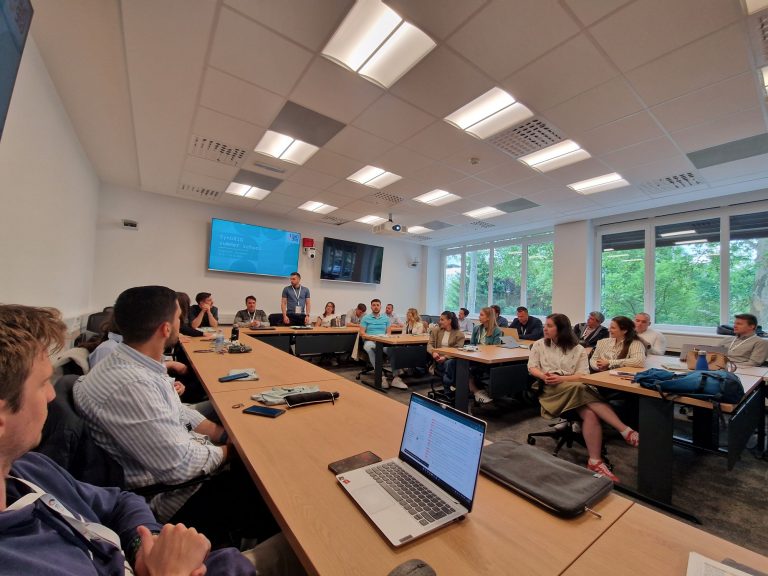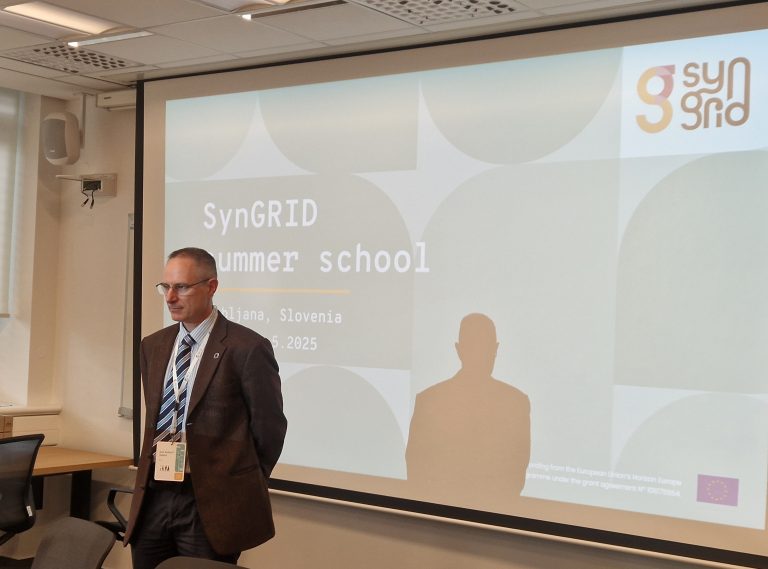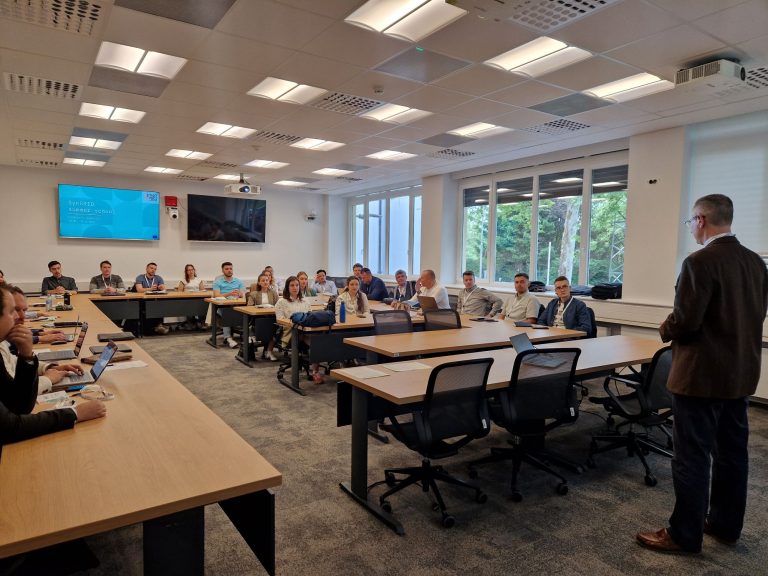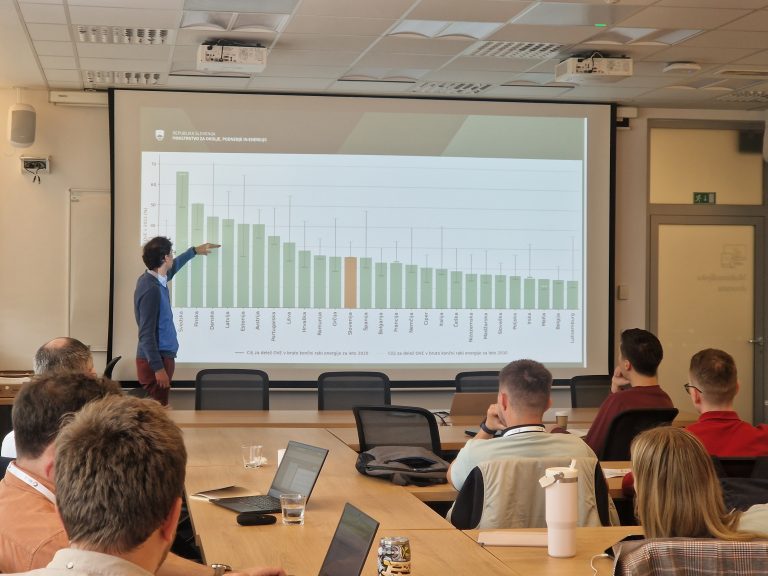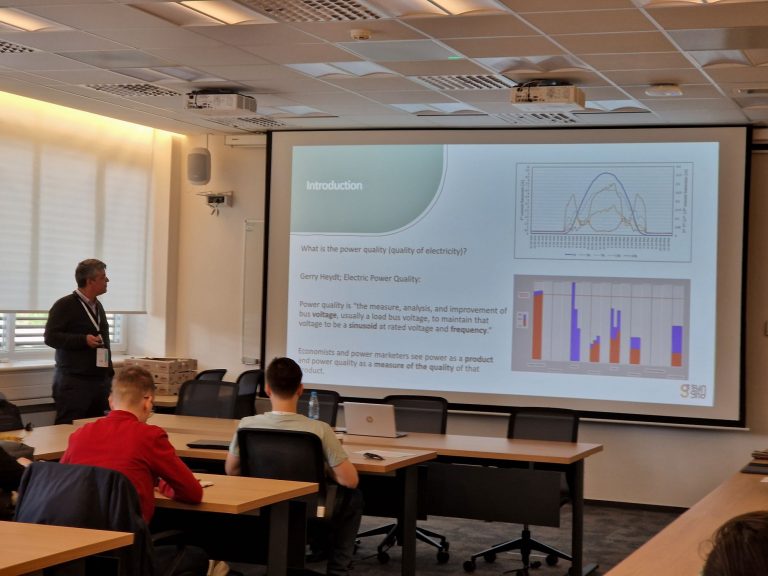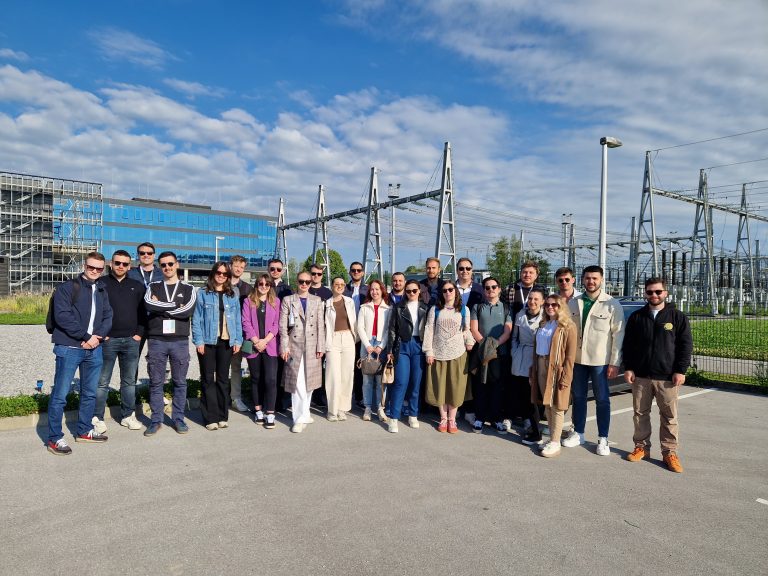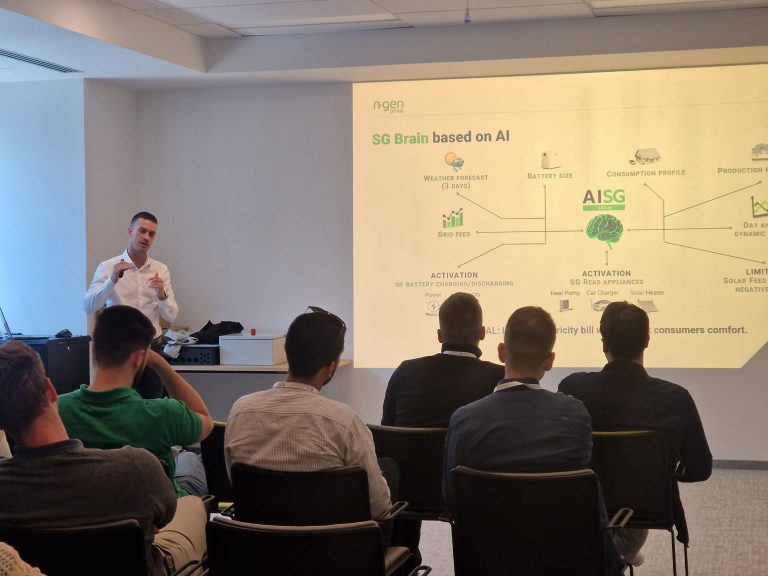
SynGRID Summer School 2025
What: SynGRID summer school
Where: Ljubljana, Slovenia
When: May 12-16, 2025
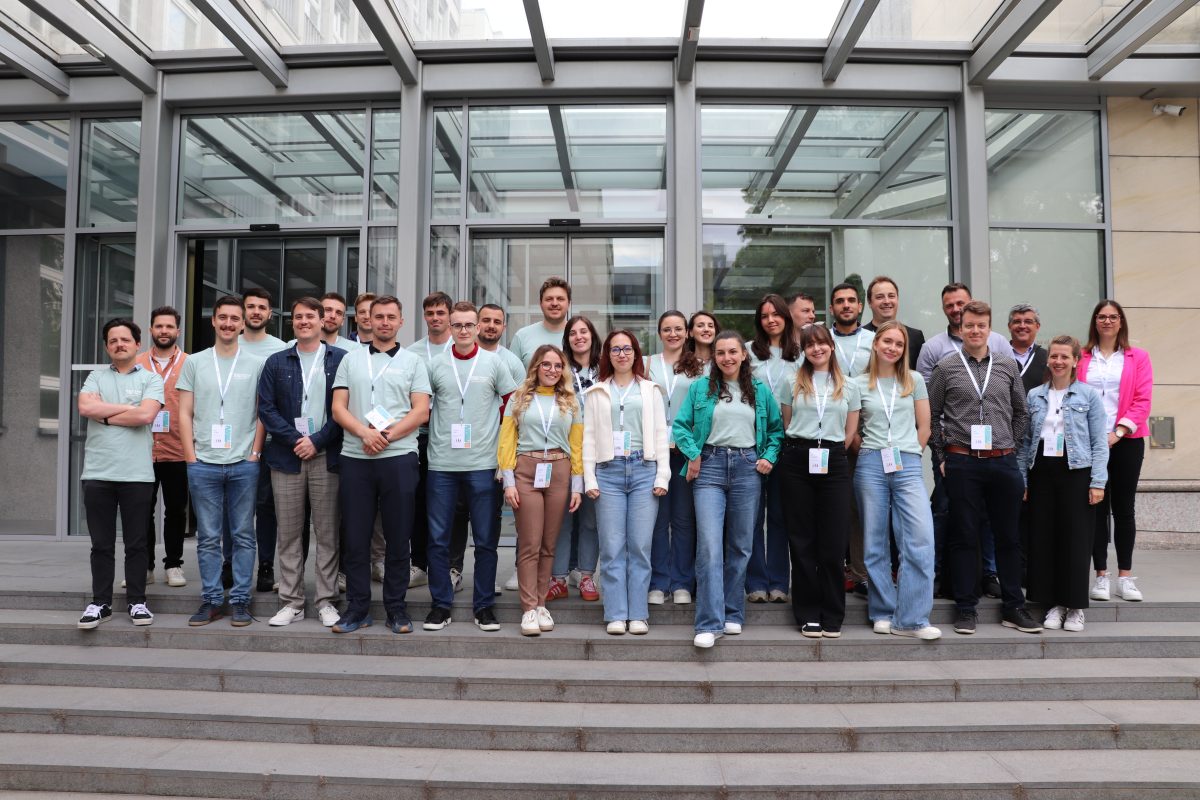
From May 12–16, 2025, the Faculty of Electrical Engineering, University of Ljubljana hosted the first SynGRID Summer School, an intensive, international program focused on the role of flexibility in Europe’s energy transition. With over 20 participants from Slovenia, Croatia, Serbia, Bosnia and Herzegovina, North Macedonia, Kosovo, Greece, Portugal, and Norway, the week offered a dynamic mix of academic expertise, industry insight, and real-world applications.
Organized by the Institute for Innovation and Development of the University of Ljubljana and the Laboratory of Energy Policy, the summer school provided a platform for young researchers and professionals to explore key topics in power systems: battery storage, demand-side flexibility, smart grids, energy communities, and regulatory frameworks shaping Europe’s energy future.
The program combined lectures with field visits to ELES, Slovenia’s national transmission and distribution operator, and NGEN, a pioneer in energy storage and grid services. These visits brought theory to life and showed how flexibility mechanisms are already supporting grid resilience and renewable integration.
SynGRID 2025 also welcomed several distinguished guest speakers who enriched the program with practical insight, policy depth, and local and international perspectives.
Ms. Petra Šeme, Head of the City of Ljubljana’s Energy Management Office, presented the city’s green energy strategy, from solar installations on public buildings to Slovenia’s largest energy-sharing community and decarbonisation of district heating and public transport. Dr. Tomislav Tkalec from the Ministry of Environment, Climate and Energy provided an in-depth look at Slovenia’s 2030 renewable targets, including a 55% RES share in electricity and buildings. He addressed planning and permitting challenges under the RED III directive and introduced the national agrivoltaics pilot, combining food production with solar deployment. Mr. Leandro Lind, policy officer at ACER brought an international lens, discussing flexibility markets and consumer-centric energy systems, and sparking debate on the socio-technical aspects of energy transition.
The program also featured a joint session by Avant Car and Kolektor sETup.
In addition, project partners delivered sessions on the evolving roles of distribution system operators, aggregation of distributed energy resources, market-based flexibility, and the integration of energy communities. These were supported by real-world examples, group work, and participant-led presentations that fostered cross-disciplinary collaboration. Beyond academic learning, the week offered cultural activities and networking opportunities, building strong connections across borders, institutions, and energy sectors.
The SynGRID project is co-funded by the European Union’s Horizon Europe programme and the Summer School was organized within the scope of this project as part of its mission to enhance knowledge exchange and capacity building in the field of smart and flexible energy systems. Following the success of this first edition, the SynGRID Summer School will return in 2026, continuing its mission to empower future energy professionals and strengthen collaboration across Southeast and wider Europe.
